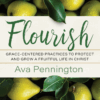As writers who work at our craft every day, we meet the blank page squarely with the intent of filling it. What will we write about? How will we describe our characters? Which facts will we use to flesh out our story and, if writing an opinion piece, our arguments?
But there is another element to writing that is often more potent than what we say on a page. That is, what we don't say. Indeed, the use of not using certain words, descriptions, or dialogue is a potent part of the writer's craft, strong and bold when used well, but disruptive and weak when used poorly.
Of course, omission in writing can get in the way of good reporting and storytelling. If you find yourself asking, "What, then?" or "Huh?" while reading, chances are you have omitted something important from your piece. For example:
"There were three people in the room she wanted to avoid: Jeremy and Phil…"
Who was the third? Or:
"Stubbing a toe is not a leading cause of death in women…"
Okay, then what is?
But omission can fill in the blanks without contributing to the "dreaded" word count limitations, too. An example of well-placed omission might be:
"You sound angry."
"I'm not angry."
"I rest my case."
In this example, you don't need the description, "she said, snapping" or any other descriptor to understand that the line "I'm not angry" was said in, well, anger.
Here's another:
He rose from the chair. "I can see this conversation isn't going anywhere. Let me know when you've thought things over more."
His words still rang in her ears as she watched him get into his car in the street below.
In the above example, you don't need to describe his going to the door, closing it, and walking downstairs and out of the building. Her point of view implies all of that without needing to say it.
Some descriptors can be substituted for verbs:
"He was at least six inches taller than Barbara" can become "He towered over Barbara."
And a character's POV can be pared, too, while still remaining strong:
"She saw tables, chairs, carpets, lamps, china, books, and sundry unidentifiable objects in the antique shop, and then saw him" can strengthen with: "She spied his mop of dark hair peeking through the piles of clutter in the antique shop."
Setimes, we focus on all the things we are going to write onto our blank pages. But, sometimes, too, strategically leaving things out can actually make our writing even more full!
Blessings for the day!
Maureen
www.maureenpratt.com
http://blog.beliefnet.com/gooddaysbaddays/


Ava Pennington
August 23, 2013 - 20 : 46 : 55Excellent illustrations, Maureen!
Thank you!